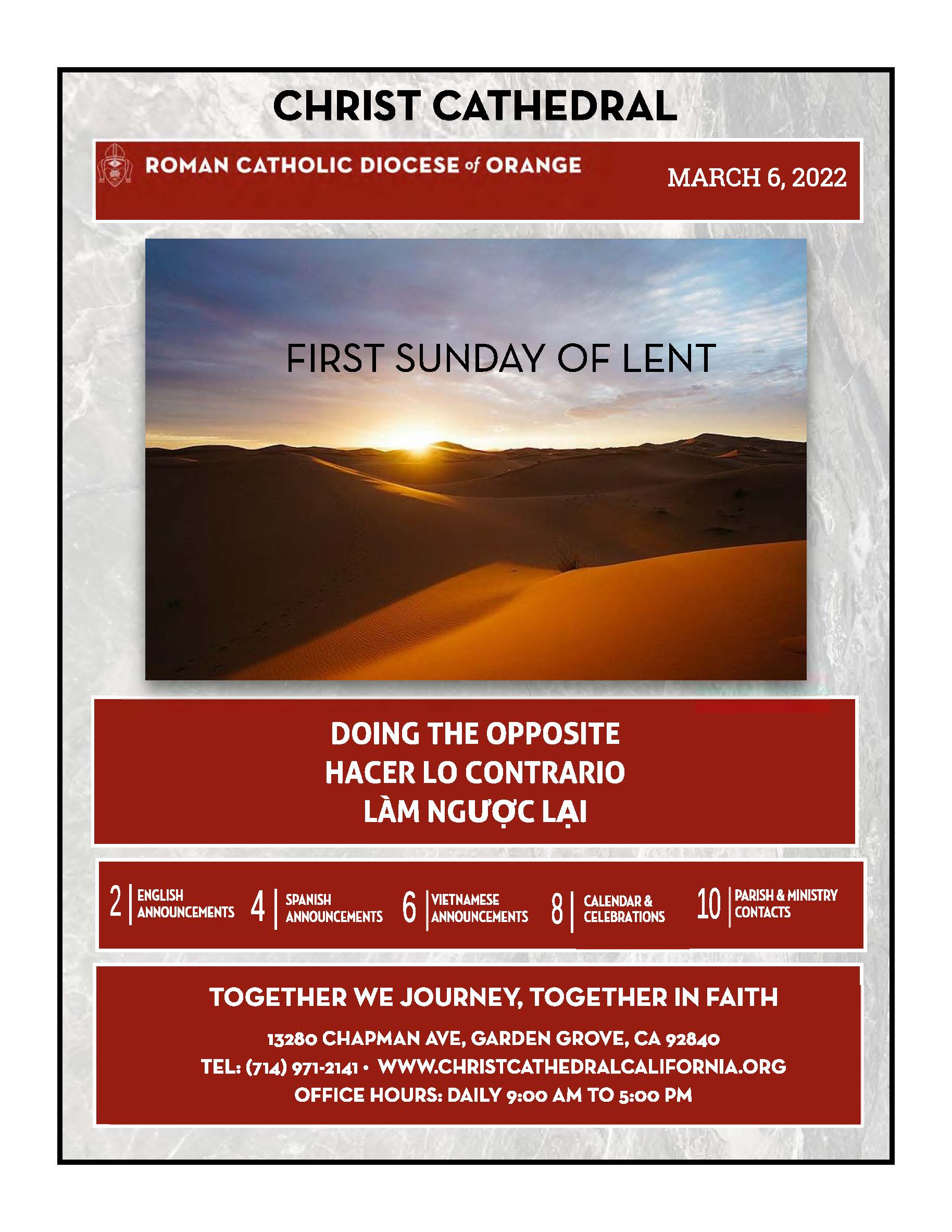Sometimes we are tempted to wish we did not have temptations. We think that if we could only get rid of our temptations we would be better people and lead more virtuous Christian lives. We tend to complain about our temptations instead of figuring out what to do with them.
Temptations are a part of everyone’s life. The Gospels show us that even Jesus was tempted. Unlike us, he did not complain about having temptations. Instead, he acknowledged he had them and then he did the opposite. In the Gospel of Luke, he was tempted to enjoy the instant satisfaction of eating when he was really hungry and he did the opposite. He stayed hungry so that he would know his need for his heavenly Father. In the temptation to amass great power he did the opposite and said all he needed was his Father. Tempted to call for a dramatic rescue by the angels he did the opposite and told Satan to not even go there because he knew without a doubt that he was cared for (Luke 4:1-13).
In the Act of Contrition we say we will avoid the near occasion of sin. Rather than seeing temptations as near occasions of sin, Jesus teaches us to see temptations as near occasions of grace. We do this by doing what he did. We name the temptation and then do the opposite. For example, when tempted to speak ill of someone, do the opposite and say something nice. Facing the temptation of being unfaithful to someone, do the opposite and shower the person with love. When stealing something from work looks so harmless, do the opposite and work some extra time without expecting compensation. An imminent lie can turn into speaking the truth. Teenagers who are tempted to come home late can do the opposite and arrive home early. With society’s temptation to lay all the blame for social problems on immigrants, we can do the opposite and learn something from them about family values and sacrifice.
The current war in Ukraine reminds us that acts of aggression usually escalate and can cause terrible suffering in the lives of innocent people. When tempted to attack someone with our words our actions, we can do the opposite and practice restraint in the interest of preventing inflicting harm on others.
As Jesus did, every day we can turn temptations from being near occasions of sin into being near occasions of grace by doing the opposite.
Together in faith,
Very Rev. Christopher Smith, Rector
